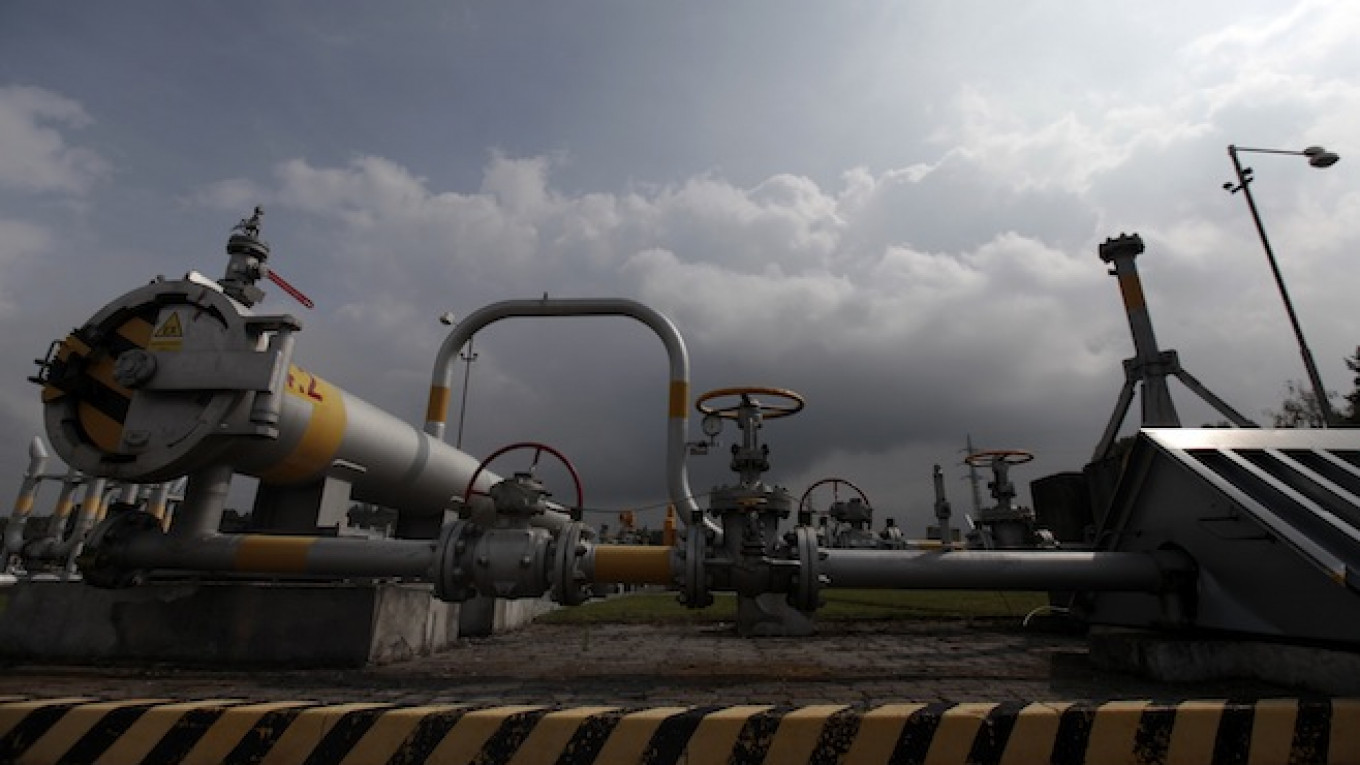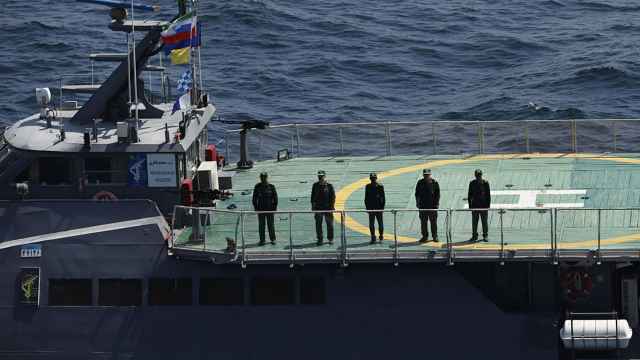Large unused liquefied natural gas (LNG) capacity could be brought to play should the row between Russia and Ukraine disrupt flows of pipeline gas to the West this winter, European LNG terminal operators' group GLE said.
The crisis in Ukraine, an important pipeline route for Russian gas to the European Union, has triggered worries of a supply disruption in the forthcoming winter months. LNG operators, which import the gas from overseas via tankers, say they could step in if there are disruptions.
"If there were to be any supply disruptions of Russian gas in the winter — but this is still speculation — then LNG can certainly contribute to solving the problems," GLE President Wim Groenendijk said on Tuesday.
Europe potentially has enough LNG import capacity to meet over a third of its annual demand, with just 16 percent of the current regasification capacity of 207 billion cubic meters (bcm) utilized in the first eight months of this year, he said.
Over 20 regasification terminals for receiving LNG, which is condensed to a liquid and shipped on tankers, are dotted around European coasts, and another six are under construction. LNG already is beginning to reduce central Europe's reliance on Russian gas.
"A suggestion that has come up is that we could bring gas to the LNG terminals close to the markets that are most affected," Groenendijk said on the sidelines of the Platts 2014 European Gas Summit.
There are hopes for a possible agreement between Russia and Ukraine over gas after the EU brokered a deal over payments last Friday, worried about relying on Russian gas for 30 percent of its total winter supply.
But the deal still has to be implemented successfully. Russia, which sends half its EU-bound gas via Ukraine, disrupted flows on that route in earlier conflicts in 2006 and 2009.
Groenendijk said that ships carrying LNG could be chartered from underused LNG terminals in Spain or Northwest Europe to go to Italy or Greece.
There they could serve Balkan countries that rely almost entirely on Russian gas, although analysts warned that a lack of infrastructure makes it difficult to bring the LNG to the regions where it is needed most.
Additionally, European spot gas prices would have to almost double to make LNG shipments to Europe attractive enough for producers such as Qatar, which otherwise sell most of their cargoes to Asia, where customers pay more.
Lithuania will start up a floating LNG terminal later this year, and Poland plans to start its own terminal next year, both driven by Europe's political desire to break away from Russian gas dominance.
In the longer term, Europe is likely to receive more LNG because the United States is building up its export capacity, which will free up cargoes elsewhere to travel to Europe.
A Message from The Moscow Times:
Dear readers,
We are facing unprecedented challenges. Russia's Prosecutor General's Office has designated The Moscow Times as an "undesirable" organization, criminalizing our work and putting our staff at risk of prosecution. This follows our earlier unjust labeling as a "foreign agent."
These actions are direct attempts to silence independent journalism in Russia. The authorities claim our work "discredits the decisions of the Russian leadership." We see things differently: we strive to provide accurate, unbiased reporting on Russia.
We, the journalists of The Moscow Times, refuse to be silenced. But to continue our work, we need your help.
Your support, no matter how small, makes a world of difference. If you can, please support us monthly starting from just $2. It's quick to set up, and every contribution makes a significant impact.
By supporting The Moscow Times, you're defending open, independent journalism in the face of repression. Thank you for standing with us.
Remind me later.






